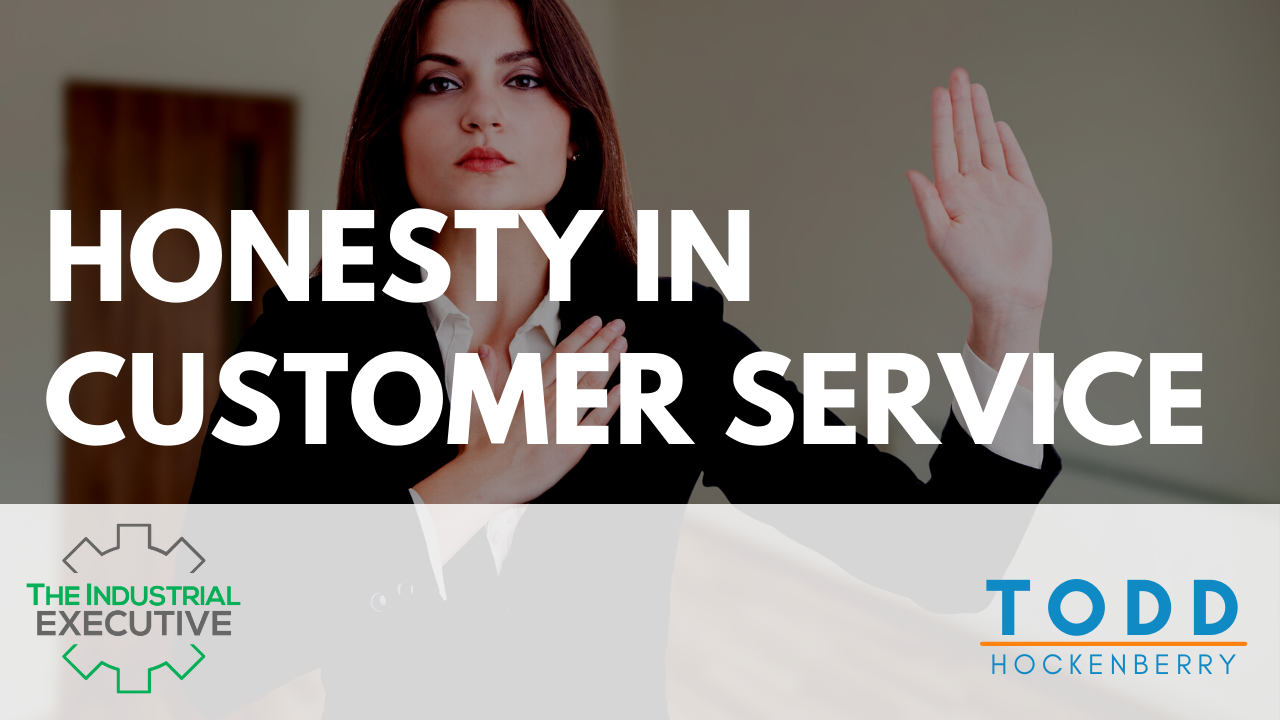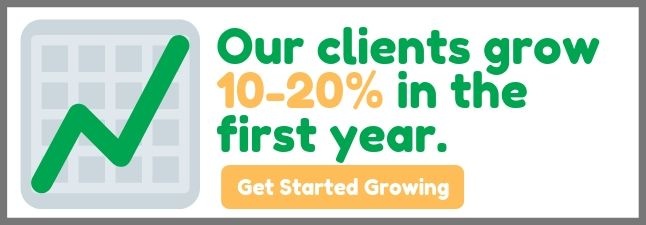Posted by Todd Hockenberry ● Jul 19, 2022
Honesty in Customer Service
Of course, you are an honest person, but do you expect honesty in your marketing communications, your sales team, and your online content?

- You will only be on hold for a minute
- We take your concerns seriously
- We are recording this for quality control purposes
- This will only take a minute
- We put the customer first
- Your answers will be confidential (like your passwords with Facebook)
Do companies really mean these things? Are they being honest when they say them?
"Consumers can handle the truth, and the information they do want to know they want delivered in a clear, forthright, trustworthy, and easy-to-find way that conveys some sense of vulnerability and openness. This is a crucial area because I think honest clarity is the currency of trust in the digital age."— Food Marketing Institute President and CEO Leslie G. Sarasin*
Being honest works because it:
1. Attracts the right buyers
Helpful, informative, honest, and clear.
These traits build authenticity which in a cluttered content world attracts the right buyers.
Top performing web pages and blog posts should be an asset to your company, do you view them that way?
These pages and posts should drive new traffic, convert visitors to leads, and drive product sales to your online store.
The key is to make sure you always keep the customer in the front of your mind when creating content and talk to them like you are talking to one of your friends or a customer who you met at a retail store.
2. Builds trust by being transparent
Honest—sincere, passionate, real, authentic, open, sharing, and understanding that the buyer is in control.
If you believe these things then you communicate transparently. If your solution is not the best fit then say that. Say you are not a good fit in your marketing and in your one-on-one sales conversations. Do not try to fit everyone into your solution, it does not work. Figure out who you help the most and the best and spend your time talking to them.
To all others, be honest and say you are not the best solution and be helpful and refer them to someone that is the right fit.
3. Doesn’t let you hide behind marketing-speak messaging
From where we sit today the moral of the story is to be honest and transparent. Stick to your ideal persona and the result will be better for everyone. And when you read your marketing copy make sure it is free of jargon, buzzwords, and nonsense terms like:
- best in class
- high quality
- great service
- best practice
If you can define these ideas with data then go for it, if not, don't say it. Being honest in your language means saying exactly what you do for a specific person - not a blob of generalities that mean nothing to anyone.
4. Focuses you on the things you do best
Committing to a niche and an ideal buyer persona makes it easier for you to create a reputation for honesty, trust, and effectiveness, potentially leading to more business.
"Helping is the essence of the “they ask, you answer” idea. We don’t base our decisions on competitors. We don’t base our decisions on bad fits that aren’t ideal customers or clients anyway. We base our decisions on prospects that are a good fit for our business. If that is who we’re focused on, then it gives us the ability to communicate however we want and be totally honest and totally real. We don’t have to fluff it; we don’t have to do any of that stuff. We can be straightforward with the information and give it to people directly. That wins us trust, and ultimately trust is what drives revenue." Marcus Sheridan, Author, They Ask, You Answer*
Honesty is still the best policy, even more so now that so much of our work is online and available for everyone to see. Rethink what it means for you and your team to be honest and you will see relationships grow and improve both inside and outside your business.
Check out the Industrial Executive newsletter on LinkedIn for more on this topic.
*Inbound Organization, Wiley 2018
Topics: Inbound Organization





